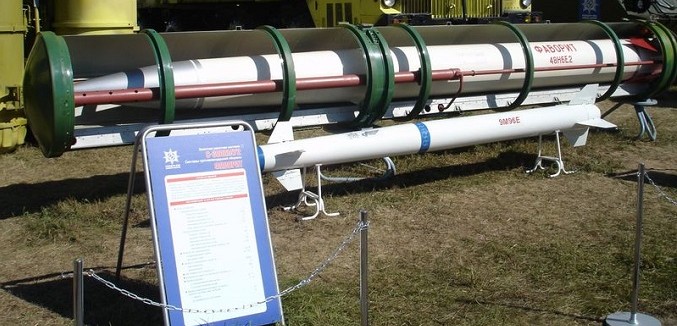Russian Foreign Minister Sergey Lavrov is emphasizing that Russia remains committed to honoring arms contracts with the Syrian regime of Bashar al-Assad, including a contract under which Russia will deliver S-300 missile defense systems to Damascus.
Russia last month acknowledged it has agreed to sell Syria advanced S-300 air-defense missiles, which are considered to be the cutting edge in aircraft interception technology.
Russia has stood by Syrian President Bashar Assad during the two-year civil war, blocking several U.N. resolutions and calls for his ouster. The death toll from the conflict is at least 93,000.
When loaded with 48N6E2 missiles, the batteries are considered “strategic” weapons with a maximum range of about 195 km. The systems interceptors are capable of outmaneuvering modern fighters and are hardened against electronic warfare.
The S-300 system is considered one of the world’s most advanced aerial defense systems. Apart for the system’s advanced radar, which can identify and track long-range targets, the missile themselves have a range of 200 kilometers.
Because of the system’s advanced technology, the time required to make it operational can range between three to six months. Syrian operators and technicians also need to undergo training, possibly in Russia, but in order to fully calibrate the system and make it operational some of the process will have to take place in Syria.
Analysts have been nearly unanimous in warning that a Russian transfer of S-300s would dramatically undermine the West’s ability to intervene in the Syrian conflict. The U.S. and its allies also fear that the missiles would be turned against opponents of the regime domestically and internationally.
Israeli Prime Minister Benjamin Netanyahu has emphasized that the systems would allow Syria to target civilian airlines flying through Israeli airspace, and the Jewish state has indicated it will act to prevent any S-300 batteries from becoming operational.
“If the missiles are provided and become operational Israel’s entire airspace will become a no-fly zone,” Netanyahu told the European foreign ministers. “The missile transfer is a significant security challenge to Israel and we will not be able to stand idly by.”
[Photo: .:Ajvol:. / Wiki Commons]




